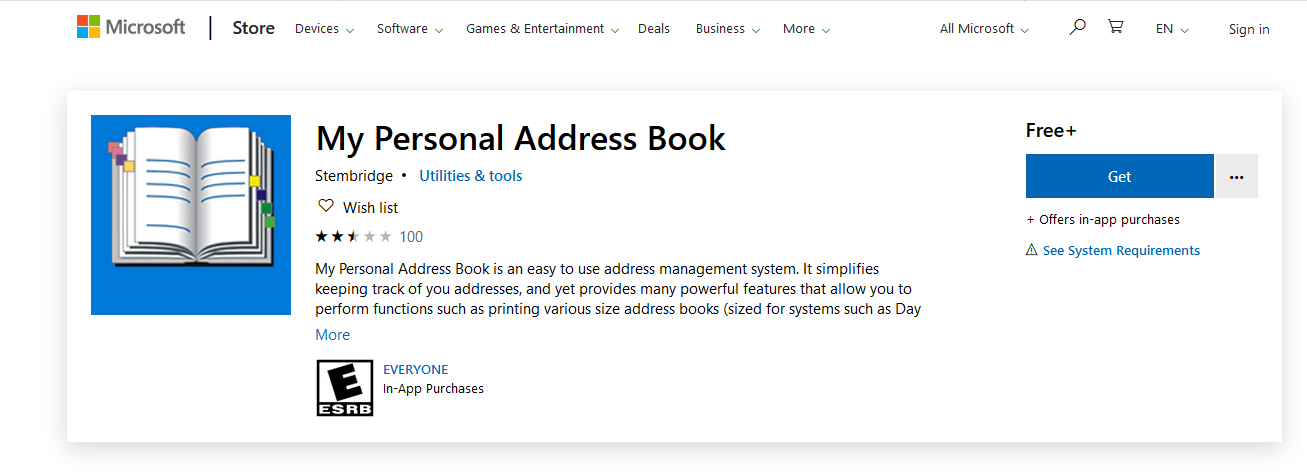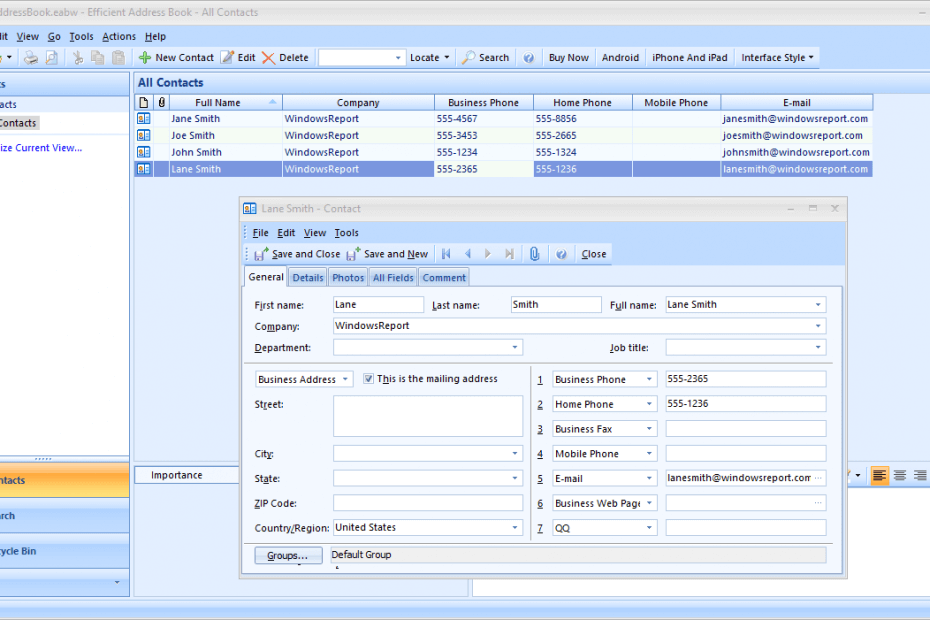

- #Open source address book software software
- #Open source address book software code
- #Open source address book software license
Richard Stallman, the founder of the free software movement, initially seemed to adopt the term, but later changed his mind. Linus Torvalds gave his support the following day, and Phil Hughes backed the term in Linux Journal.
#Open source address book software code
Peterson suggested "open source" at a meeting held at Palo Alto, California, in reaction to Netscape's announcement in January 1998 of a source code release for Navigator. The group included Christine Peterson, Todd Anderson, Larry Augustin, Jon Hall, Sam Ockman, Michael Tiemann and Eric S. However, the ambiguity of the word "free" exists primarily in English as it can refer to cost. In addition, the ambiguity of the term "free software" was seen as discouraging business adoption. The term "open source" was first proposed by a group of people in the free software movement who were critical of the political agenda and moral philosophy implied in the term "free software" and sought to reframe the discourse to reflect a more commercially minded position. BSD, for example, was first widely distributed by posts to comp.os.linux on the Usenet, which is also where its development was discussed. The sharing of source code on the Internet began when the Internet was relatively primitive, with software distributed via UUCP, Usenet, IRC, and Gopher. This led to the birth of the early Internet in 1969. Beginning in the 1960s, ARPANET researchers used an open " Request for Comments" (RFC) process to encourage feedback in early telecommunication network protocols. Įarly instances of the free sharing of source code include IBM's source releases of its operating systems and other programs in the 1950s and 1960s, and the SHARE user group that formed to facilitate the exchange of software. By the time the US entered World War II, 92 Ford patents and 515 patents from other companies were being shared among these manufacturers, without any exchange of money (or lawsuits). The new association instituted a cross-licensing agreement among all US automotive manufacturers: although each company would develop technology and file patents, these patents were shared openly and without the exchange of money among all the manufacturers. The result was that the Selden patent became virtually worthless and a new association (which would eventually become the Motor Vehicle Manufacturers Association) was formed. In 1911, independent automaker Henry Ford won a challenge to the Selden patent. By controlling this patent, they were able to monopolize the industry and force car manufacturers to adhere to their demands, or risk a lawsuit. For instance, in the early years of automobile development a group of capital monopolists owned the rights to a 2-cycle gasoline-engine patent originally filed by George B. The sharing of technical information predates the Internet and the personal computer considerably. Main article: History of free and open-source software Many large formal institutions have sprung up to support the development of the open-source movement, including the Apache Software Foundation, which supports community projects such as the open-source framework Apache Hadoop and the open-source HTTP server Apache HTTP.
#Open source address book software license
Depending on the license terms, others may then download, modify, and publish their version (fork) back to the community. Code is released under the terms of a software license. Generally, open source refers to a computer program in which the source code is available to the general public for use or modification from its original design. The open-source software movement arose to clarify copyright, licensing, domain, and consumer issues. Open source gained hold with the rise of the Internet. Before the phrase open source became widely adopted, developers and producers have used a variety of other terms. Open source promotes universal access via an open-source or free license to a product's design or blueprint, and universal redistribution of that design or blueprint. The model is used for projects such as in open-source appropriate technology, and open-source drug discovery. The open-source movement in software began as a response to the limitations of proprietary code.

Ī main principle of open-source software development is peer production, with products such as source code, blueprints, and documentation freely available to the public.

The open-source model is a decentralized software development model that encourages open collaboration. Products include permission to use the source code, design documents, or content of the product. Open source is source code that is made freely available for possible modification and redistribution. For a common use, see Open-source software, and for other uses, see Open source (disambiguation).


 0 kommentar(er)
0 kommentar(er)
